Is Your Car Watching You?
What data is it collecting and who is it sharing it with?
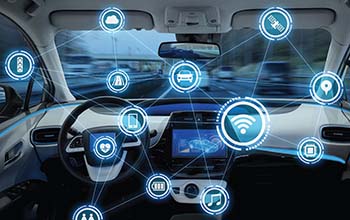
In This Article
• Cars are now computers on wheels
• They collect a large amount of data
• Used by car makers & insurance companies
• You might own the car but not the data
• Things you can to do protect yourself
(No time to read right now? Just want to see the list of things to know? Here you go.)
Introduction
Modern cars have become computers on wheels. They've got hundreds of sensors and collect a lot of data about the vehicle and its driver.
Privacy and security advocates have raised concerns about who this data is being shared with and how it's being used.
What's Happening in Modern Cars?
Modern cars can track, save, and transmit a large amount of data. This includes the car's location and stops (even if the navigation system is not being used), acceleration and braking patterns, and the time of day the vehicle is in use.
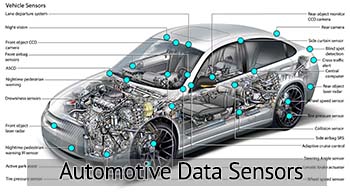 If you connect a smartphone to the car (via wireless bluetooth or a charging cable), the car can also collect data like your phone's unique ID, who you call and who calls you, your contacts and their addresses, emails, photos, and more.
If you connect a smartphone to the car (via wireless bluetooth or a charging cable), the car can also collect data like your phone's unique ID, who you call and who calls you, your contacts and their addresses, emails, photos, and more.
Any of this data can potentially be sent back to the manufacturer of the vehicle and/or an insurance company. But the car doesn't tell you what data it's collecting and there's usually nothing in the owner's manual about it.
And there's no way to see what data has been collected.
By the 2020 model year, most new cars sold in the US had a built-in Internet connection. This includes 100% of the cars from GM, Ford, and BMW. It also include all models except one from VW and Toyota.
 Some people are aware of these Internet connections but many are not. The car maker determines what data is transmitted from and to the vehicle, and who can use the data.
Some people are aware of these Internet connections but many are not. The car maker determines what data is transmitted from and to the vehicle, and who can use the data.
From their perspective, they want to see vehicle performance data with the good intention of improving safety, sending timely service alerts, and optimizing fuel efficiency and trip routing.
Insurance companies want the data so they can offer discounts to drivers exhibiting safe driving habits (and perhaps raise premiums on drivers who are more reckless).
Data Collection
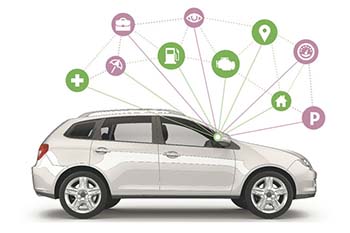 GM has been connecting cars via OnStar since 1996 and now has 11 million cars on the road with 4G LTE cellular connections. GM won't provide details on what it collects but says it's in 3 categories: vehicle location, vehicle performance, and driver behavior.
GM has been connecting cars via OnStar since 1996 and now has 11 million cars on the road with 4G LTE cellular connections. GM won't provide details on what it collects but says it's in 3 categories: vehicle location, vehicle performance, and driver behavior.
In addition to hundreds of sensors, cars today have multiple onboard computers that can generate up to 25G of data per hour. Some German cars have 300G hard drives to store their data. And Teslas can collect and save videos, even when the car is not in operation.
Potential Problems with Automotive Data
Even though you might own the car, you do not own the data it generates. The auto manufacturer retains ownership. They obscure what they collect and how they use it in privacy policies you'd need an advanced law degree to understand.
Data itself is neither good nor bad — it depends on how it's used. In the near future, data sharing among Internet-connected cars will improve safety, re-route drivers around problems, and even help urban planners decide where new streets should be built.
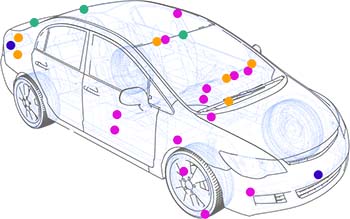 And forensic analysis of the data after accidents can help prevent future ones.
And forensic analysis of the data after accidents can help prevent future ones.
The potential problems arise when data generated by driving habits gets shared, stolen, or sold. There are currently no Federal laws about automotive data protection.
However, the California Consumer Privacy Act (CCPA) requires companies that collect personal data about state residents to provide access to that data and to give people a way to opt out of its collection. Hopefully more states will enact similar legislation.
What Can You Do?
As high-speed, high-bandwidth 5G cellular networks cover more areas, it'll be easier for cars to connect to the Internet and send even larger amounts of data.
Car makers don't make it easy to turn off data collection, but you can limit what's collected.
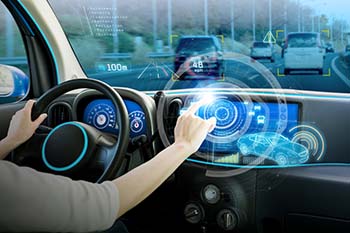 A wireless bluetooth connection between your smartphone and the car enables the car to see a lot of data on your phone. So avoid that type of connection if you can.
A wireless bluetooth connection between your smartphone and the car enables the car to see a lot of data on your phone. So avoid that type of connection if you can.
If you need to connect the phone via a charging cable, use a “dumb” connection via the auxiliary power outlet (what we used to call the “cigarette lighter”) instead of plugging the phone into the car's USB port. Devices like this one provide power but block all data connections.
If you have to connect via the car's USB port, at least use a data blocker like we explained in our article about Dangerous iPhone Cables
An app such as Privacy4Cars can remove personal information from cars you've driven (your own, rentals, etc.).
If you have a vehicle with OnStar, there are directions here on how to disable it and tell it to stop collecting data
Summary
Modern cars collect, store, and transmit a lot of data about the vehicle and its driver's habits. While there are some very good uses of this data, there are also significant security and privacy concerns.
This article explained how this data is collected and used, and provided some things you can do to protect yourself.
Questions?
If you have any questions about anything here or if there's an issue you'd like us to write about please get in touch.
Want More Info Like This?
Get our Free Newsletter
